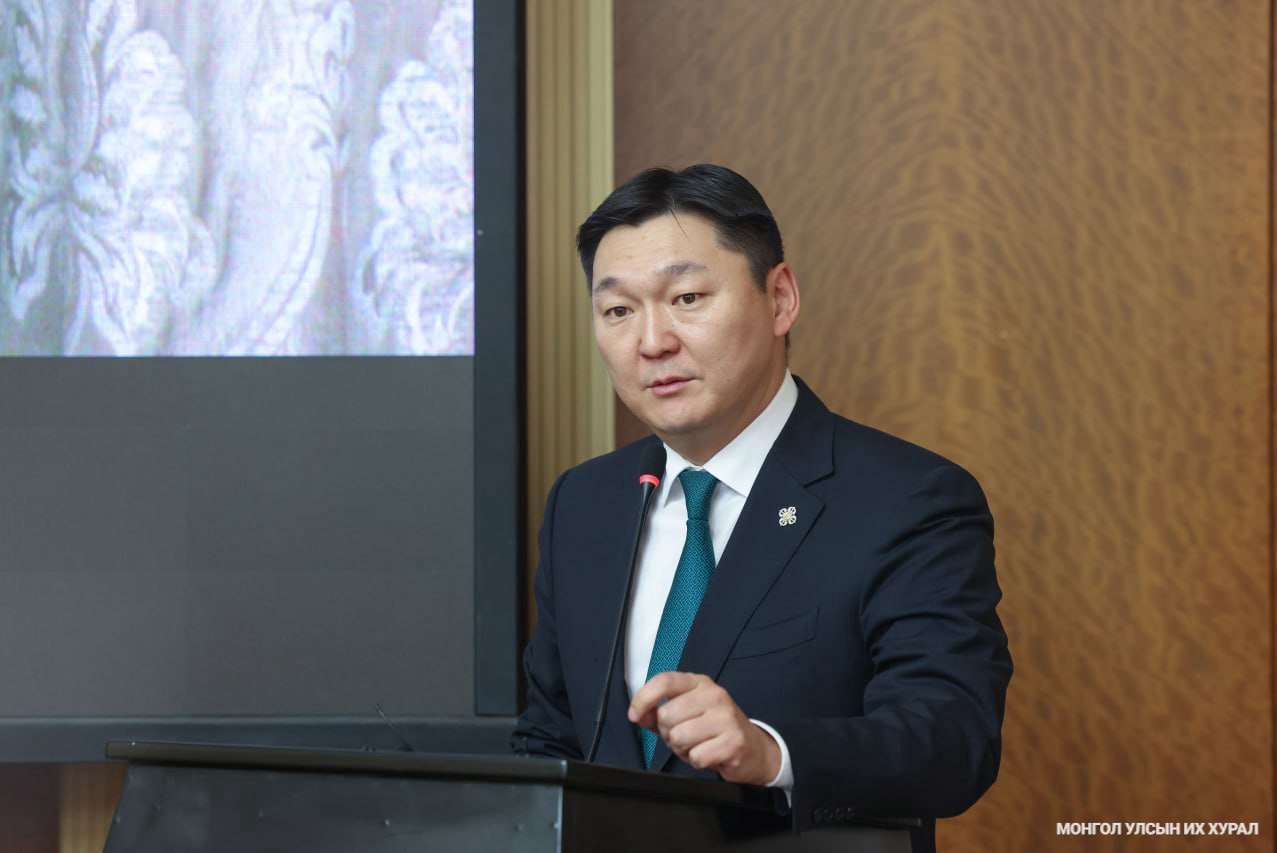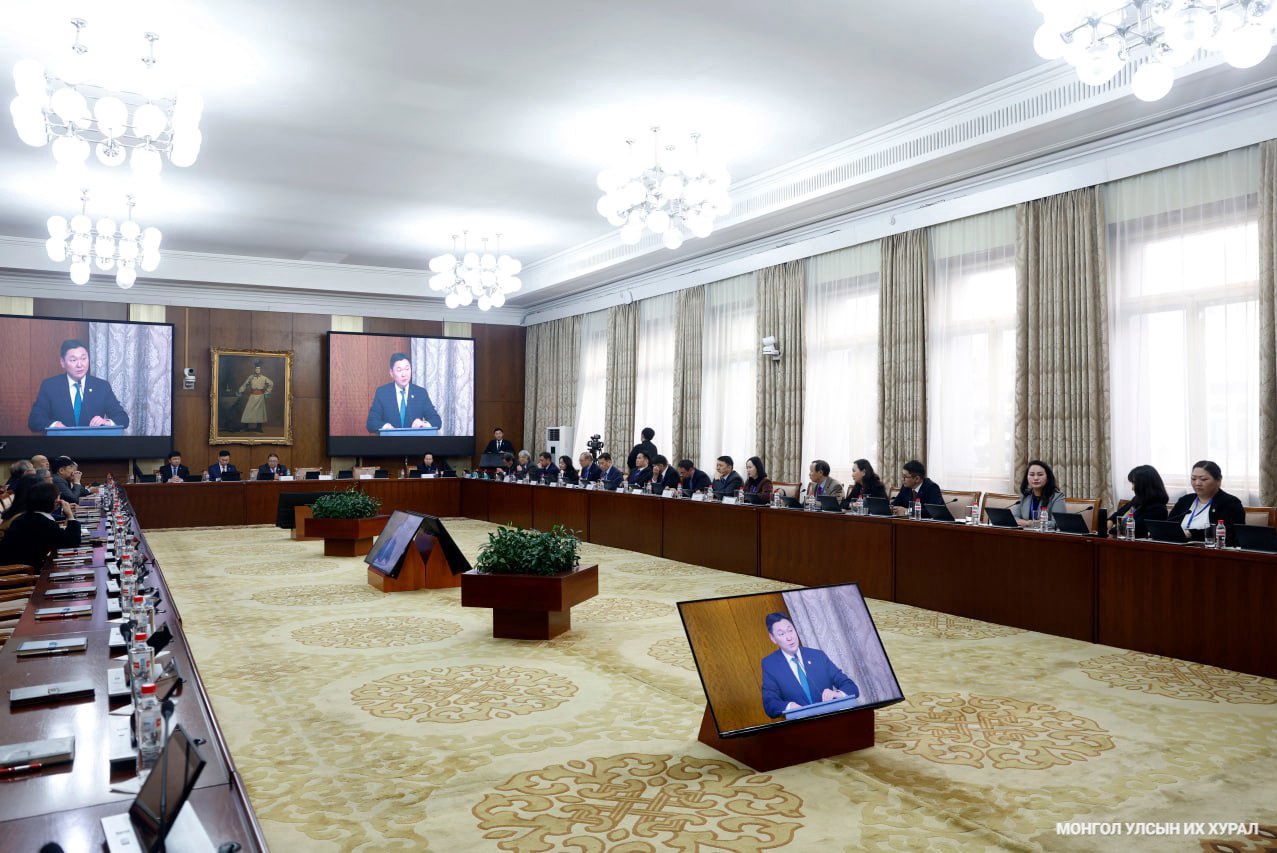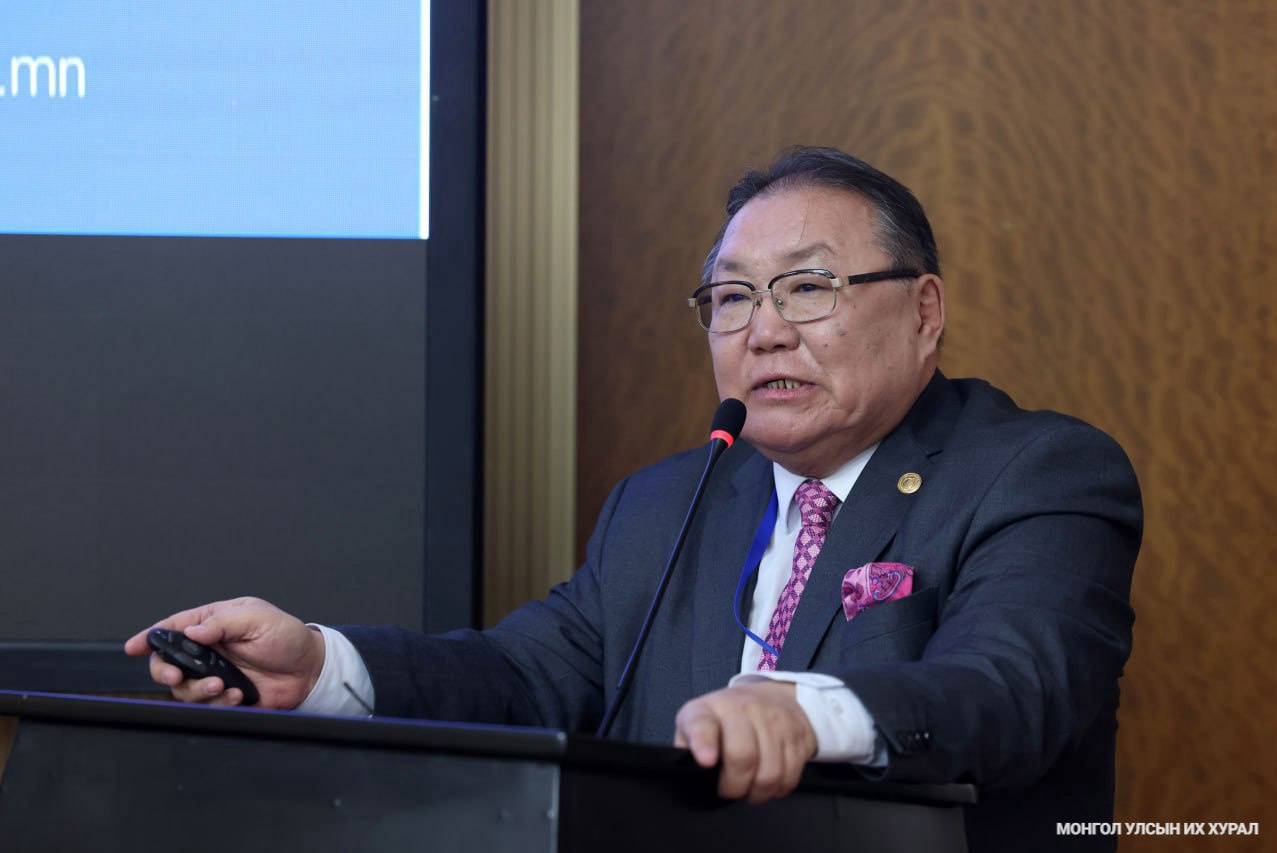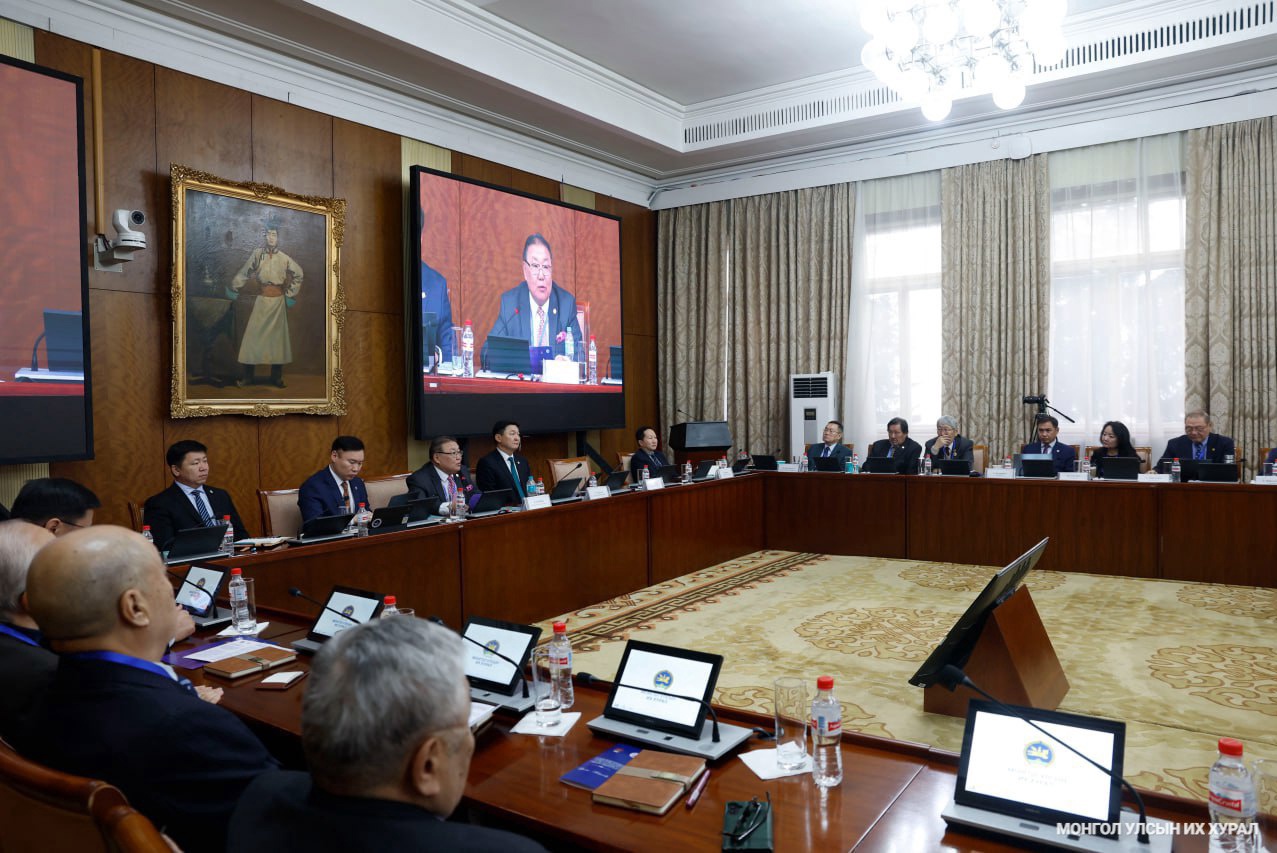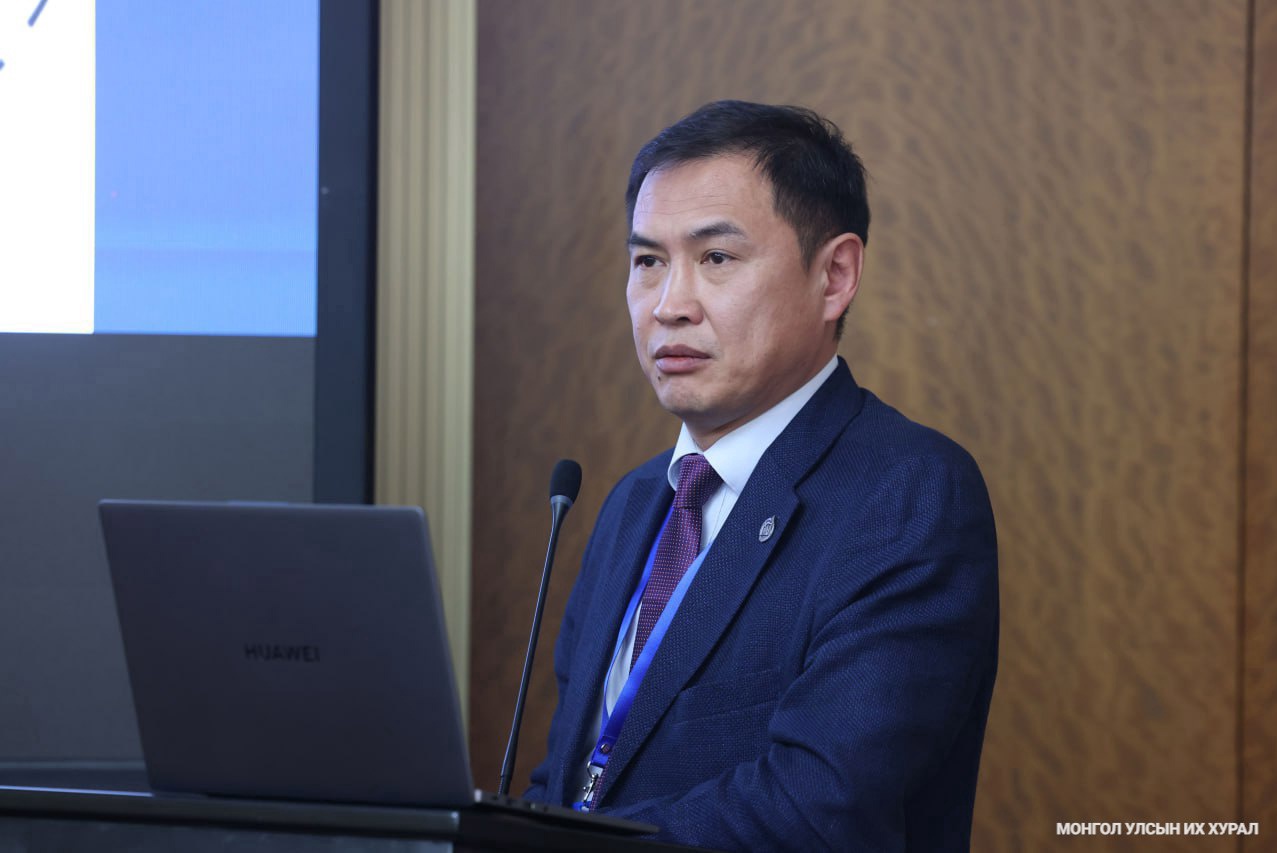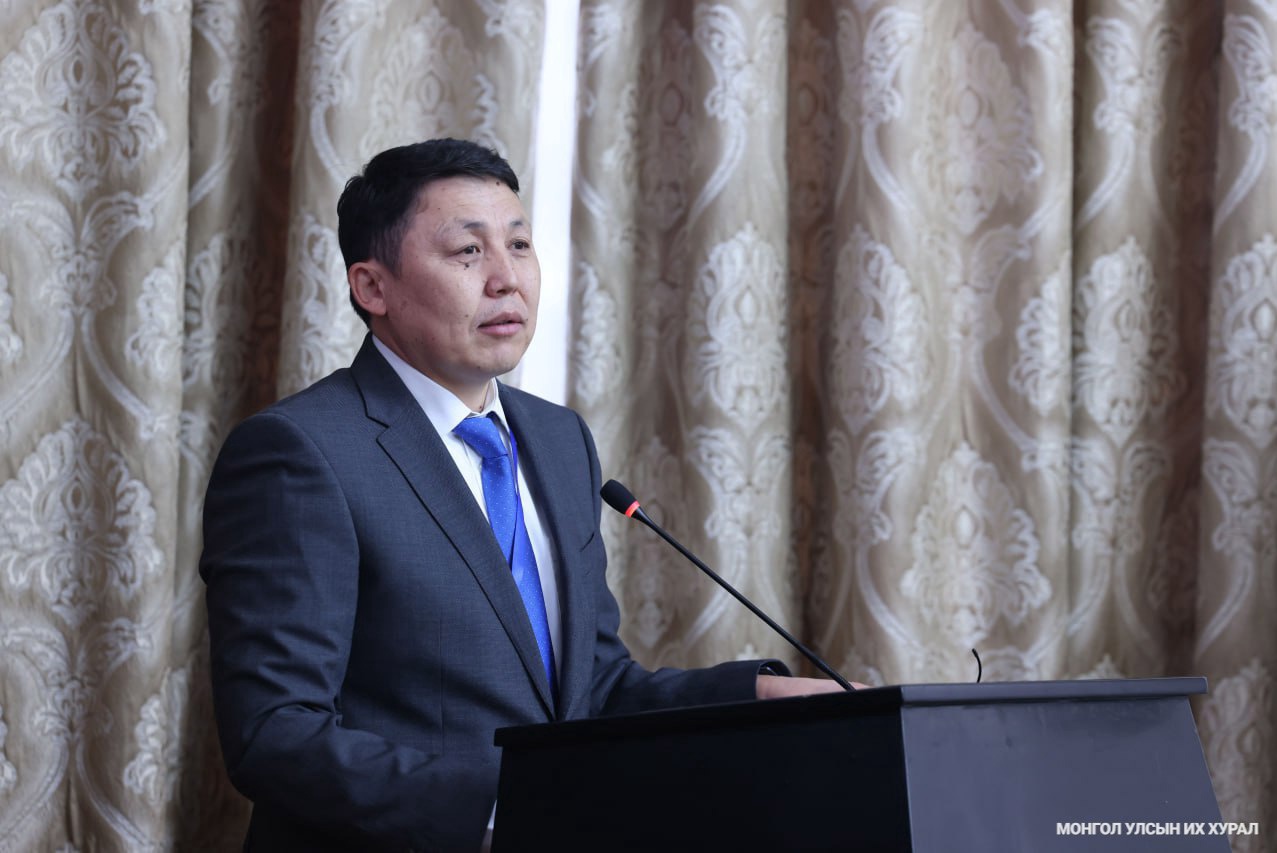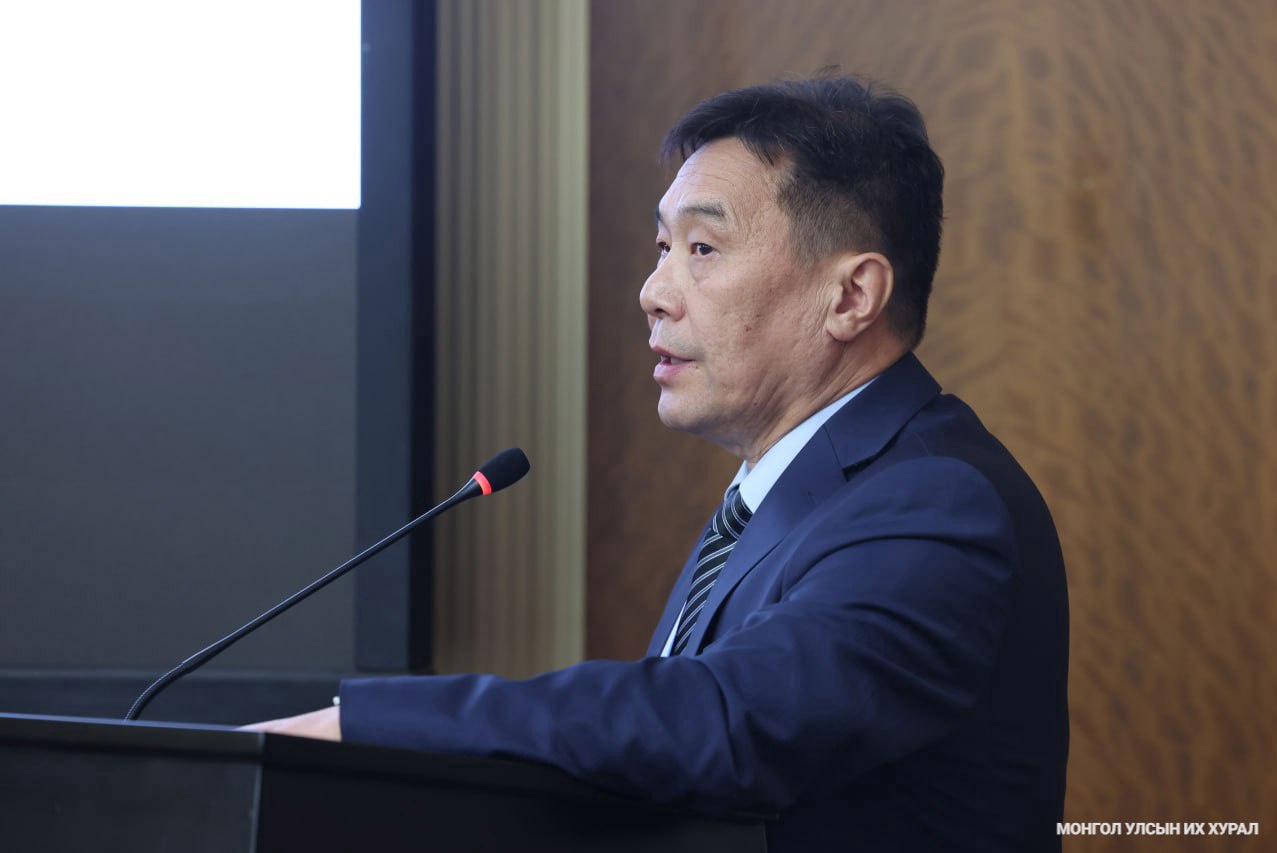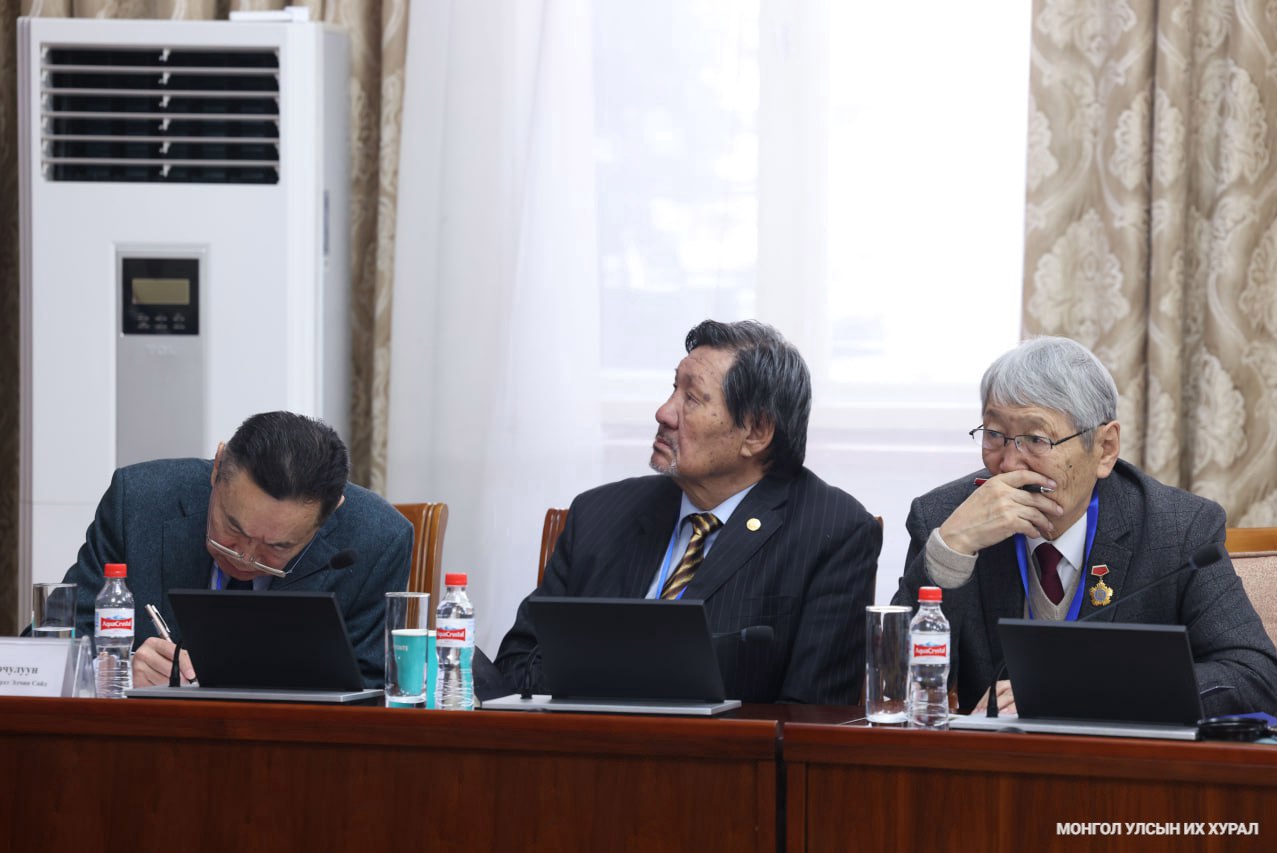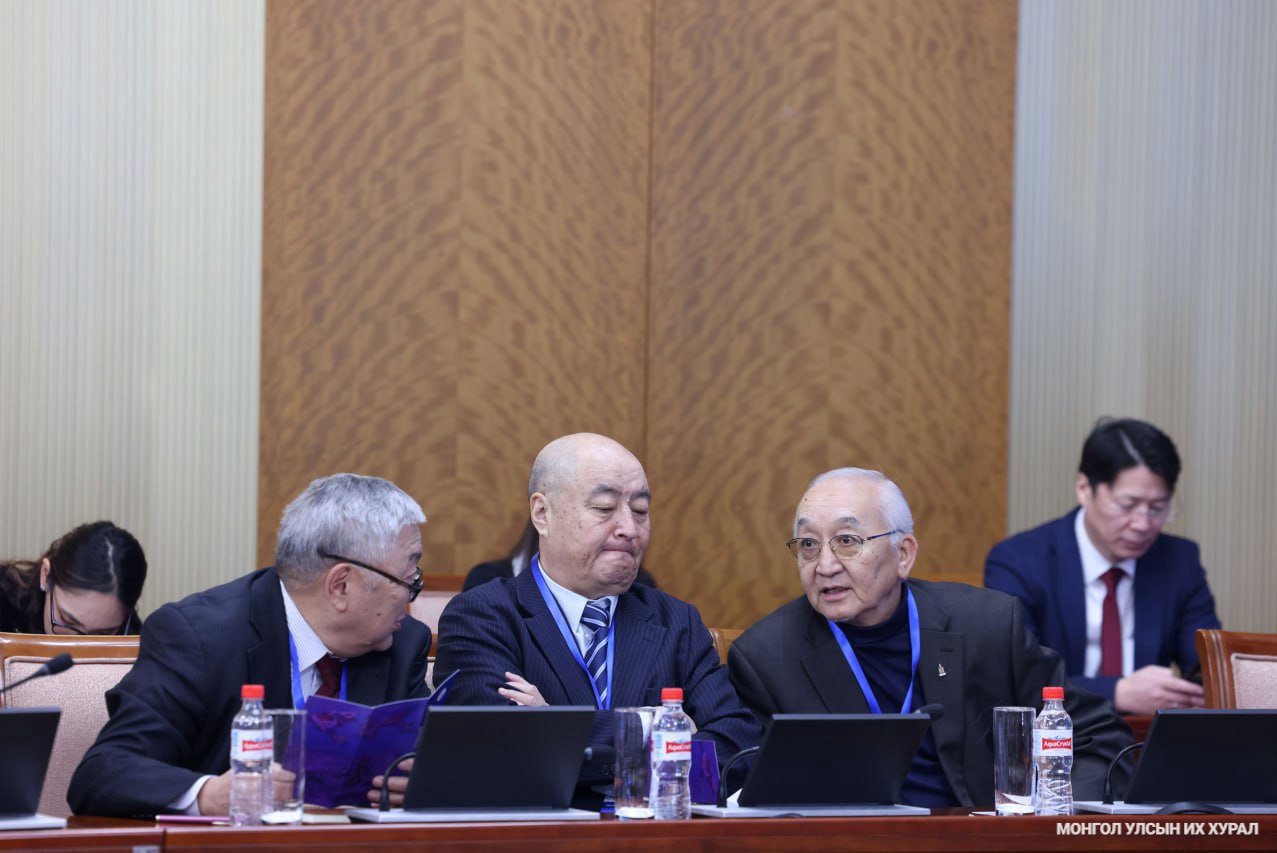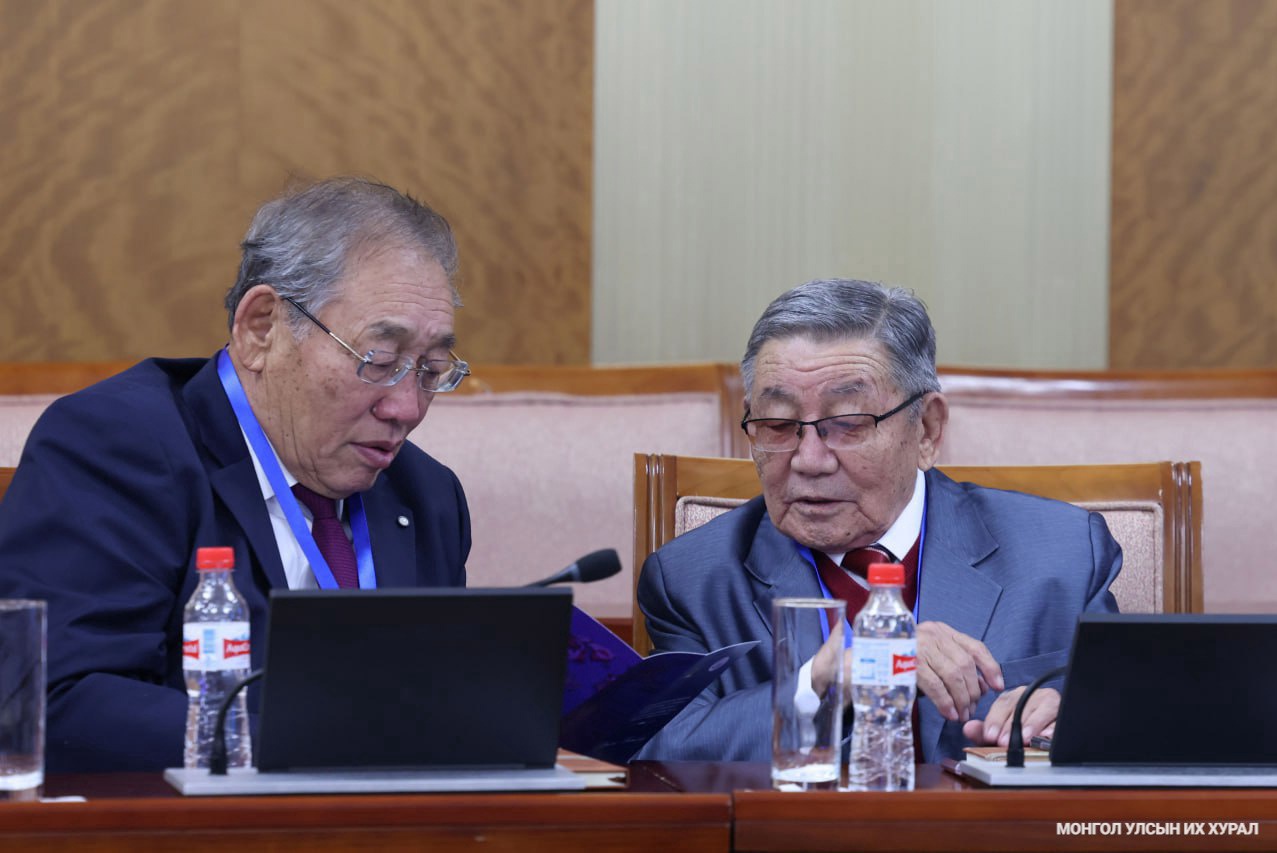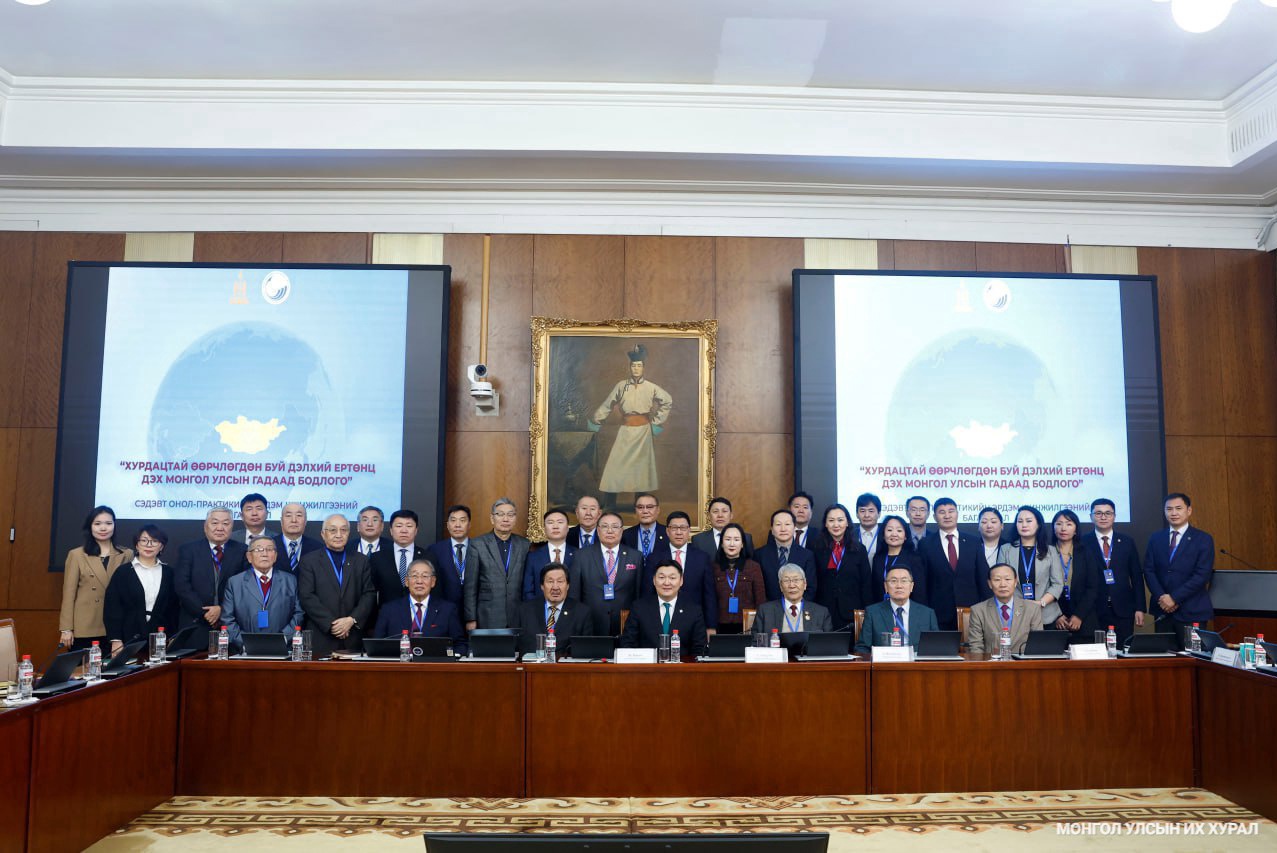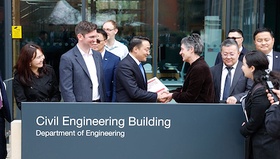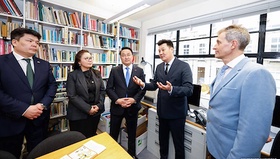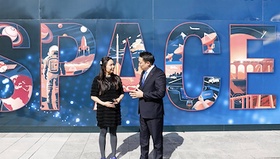The Standing Committee on Security and Foreign Policy of the State Great Hural, in collaboration with the School of International Relations and Social Studies of the University of Humanities, organized a theoretical and practical academic conference titled "Mongolia’s Foreign Policy in a Rapidly Changing World" at the State Palace today (January 29, 2025). The event was supported by the Strategic Studies Institute of the National Security Council, the School of Political Science, International Relations, and Public Administration of the National University of Mongolia, and the Mongolian MGIMO Alumni Association.
The conference was opened by MP G. Temuulen, chair of the Standing Committee on Security and Foreign Policy, who highlighted that Mongolia’s fundamental foreign policy documents, including the Concept of National Security and the Concept of Foreign Policy, emphasize an independent, open, multi-pillared, and peace-oriented approach. However, recent global developments and geopolitical shifts necessitate a more assertive and reinforced implementation of Mongolia’s foreign policy.
He underscored that terrorism, armed conflicts, revolutions, the impact of the COVID-19 pandemic, and evolving geopolitical factors are reshaping the established international order. As global military spending rises and nations engage in an arms race, Mongolia must remain vigilant and actively engage in foreign policy discussions to navigate these complex challenges.
MP G. Temuulen stressed the importance of research-based, strategic decision-making to address Mongolia’s foreign policy challenges, ensuring that the country adapts effectively to shifting international power dynamics and emerging global interests. He expressed confidence that the conference would provide a platform to assess Mongolia’s foreign policy from multiple perspectives, identify new challenges and achievements, and gather expert insights.
A greeting message from Foreign Minister B. Battsetseg was delivered by Ambassador-at-Large D. Munkhtur, emphasizing that Mongolia’s diplomatic and economic cooperation has expanded significantly in recent years, with an increase in high-level reciprocal visits. The principle of balanced relations, a core aspect of Mongolia’s foreign policy, remains at the forefront, helping the country maintain its diplomatic identity amid a complex global landscape.
The message also highlighted Mongolia’s strategic position between two major powers, making it highly susceptible to international developments. It emphasized the need for smart, proactive, and skillful diplomacy to navigate traditional and emerging security threats.
The first keynote presentation was delivered by Dr. D. Ulambayar, professor and director of the School of International Relations and Social Studies at the University of Humanities, titled "A New Paradigm in Mongolia’s Foreign Policy: Challenges, Achievements, and Pressing Issues."
Dr. D. Ulambayar pointed out that Mongolia’s National Security Concept defines national security as ensuring a favorable external and internal environment. However, in today’s globalized and digital era, he argued that national security must be viewed as a continuous process rather than a static condition. He emphasized the importance of maintaining a balanced foreign policy to mitigate risks in an increasingly polarized world
Dr. G. Bazarvaan, senior policy analyst at the Strategic Studies Institute of the National Security Council, presented on "Ensuring Mongolia’s National Security through Foreign Policy Instruments." He examined the role of diplomacy in safeguarding Mongolia’s national interests, emphasizing that the Third Neighbor Policy plays a crucial role in maintaining Mongolia’s security and international positioning.
Dr. Yo. Jargalsaikhan, another senior analyst at the Strategic Studies Institute, delivered a presentation on "Ensuring Mongolia’s National Security through Economic Measures." His discussion covered economic challenges, trade relations, and lessons from other countries, emphasizing the importance of diversifying Mongolia’s economy and strengthening industrial capacity to reduce external dependencies.
Additionally, Dr. A. Davaasuren, head of Russian Studies at the Institute of International Studies of the Mongolian Academy of Sciences, analyzed Mongolia-Russia economic relations, addressing cross-border trade, investment barriers, and key issues affecting exports and imports. He noted that tariff restrictions imposed by the Eurasian Economic Union (EAEU) impact Mongolia’s trade with Russia, particularly in energy, grain, and essential goods. He suggested that a Free Trade Agreement with the EAEU could secure stable access to strategic resources for Mongolia.
Dr. Kh. Bayarkhuu, a specialist in China-Mongolia relations, presented on "Mongolia-China Comprehensive Strategic Partnership: Issues and Solutions," discussing China’s foreign policy decisions, economic cooperation, and trade policies. He highlighted the need to accelerate cross-border connectivity, expand investment in non-mining sectors, and promote green and renewable energy projects to enhance Mongolia’s economic engagement with China.
The afternoon sessions featured presentations and discussions on:
Decision-making in Mongolia’s foreign policy
The expansion of the Shanghai Cooperation Organization (SCO) and Mongolia’s position
Mongolia’s nuclear-weapon-free status and its future direction
Mongolia’s role in international peacekeeping operations: challenges and opportunities
Great power geopolitical rivalries and their impact on Mongolia
The conference continues with expert discussions aimed at shaping Mongolia’s foreign policy amid a rapidly changing global landscape.

 Eng
Eng  Монгол
Монгол
